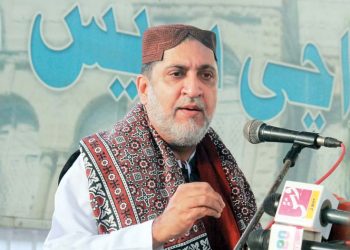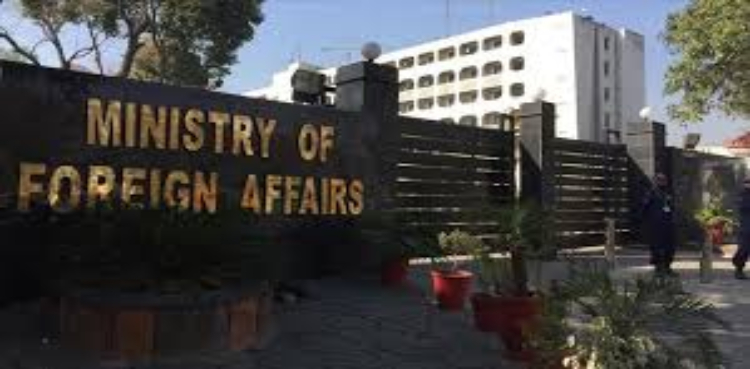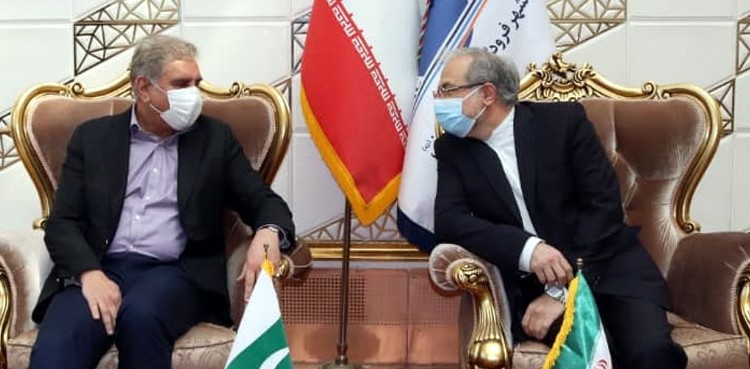A three-member Supreme Court bench has resumed hearing in the review petition of the election commission against the court’s verdict announcing polls in Punjab on May 14.
A three-member bench headed by Chief Justice of Pakistan Umar Ata Bandial, and comprising Justice Ijazul Ahsan and Justice Muneeb Akhtar, heard the ECP’s review petition.
The ECP’s counsel Sajeel Swati argued that Supreme Court rules did not reduce Constitutional authority. He further said a full court has declared in various cases that the scope of a review is not limited.
Justice Akhtar remarked that if this argument was accepted then the Supreme Court rules would become void.
The counsel said in certain cases, parliament’s lawmaking authority is also limited. He added that a review plea is essentially a continuation of the main case.
Justice Akhtar said the lawyer had expanded the scope of the review more than the parent case.
The ECP counsel argued that a caretaker government must be in place for elections.
At this, Justice Ahsan questioned that if a provincial assembly was dissolved in six months, will a caretaker set-up remain for four and half years in that province? To which, the counsel responded in the affirmative.
He further said Article 254 can provide legal cover to any extension to the 90-day deadline to hold elections to an assembly that has been dissolved. He added that elections can be delayed beyond 90 days.
The judge remarked that it can also be treated in such a way that an elected government stays for four and a half years and a caretaker for six months. He added that the 90-day period is also given in the Constitution.
“Where is it mentioned that a caretaker government’s duration can be extended?” Justice Ahsan asked, adding any extension to the caretaker set-up’s duration is against the spirit of the Constitution.
The lawyer agreed to the court’s observation.
The counsel however contended that only an elected government can run the country, adding there can be no breaks in democracy.
Justice Ahsan commented that caretaker governments were included into the Constitution only to facilitate the election commission, adding that it is the responsibility of the ECP to conduct fair elections.
The election commission cannot express inability to conduct fair polls, the counsel said.
To this, Justice Akhtar remarked that the ECP would say give it funds and security, and it will organize the polls. Those talking about the Constitutional rule are running away from it, he added.
The ECP counsel said the October 8 date for elections was given based on facts. To this, Justice Akhtar asked what if the commission tells the court in September that election cannot be held in October?
He further remarked that conducting elections was the election commission’s duty and not a prerogative.
The CJP asked how long will democracy be sacrificed by extending elections, adding democracy has been sacrificed several times in history and its results have been faced for years. He further said the ECP is now making political statements now.
He further said the Balochistan local government polls were held despite security concerns. He added that if elections are delayed, negative elements exert their force.
“As caretakers of the Constitution, how long will the Supreme Court stay silent?” the CJP asked.
The counsel responded that the May 9 incidents have validated the fears of the election commission.
Justice Ahsan asked if a caretaker government can stay for as long as it wants. The ECP counsel said the duration of a caretaker set-up will be determined as per the circumstances.
Justice Aktar said the election commission told the court that only funds were required for polls, and now it says that the polls are not possible under the rules of the Constitution.
The CJP asked which articles of the Constitution will become ineffective if elections are held simultaneously across the country. If the system was strong, it will probably be possible to hold separate elections, he remarked.
The ECP counsel said separate elections to all assemblies are not possible in the current circumstances. If there is an elected government in Punjab, how the National Assembly polls will be fair, he asked.
The CJP responded that the provincial assembly’s interference can be stopped in the NA elections, adding if the commission is strong and fair, there can be no interference.














































